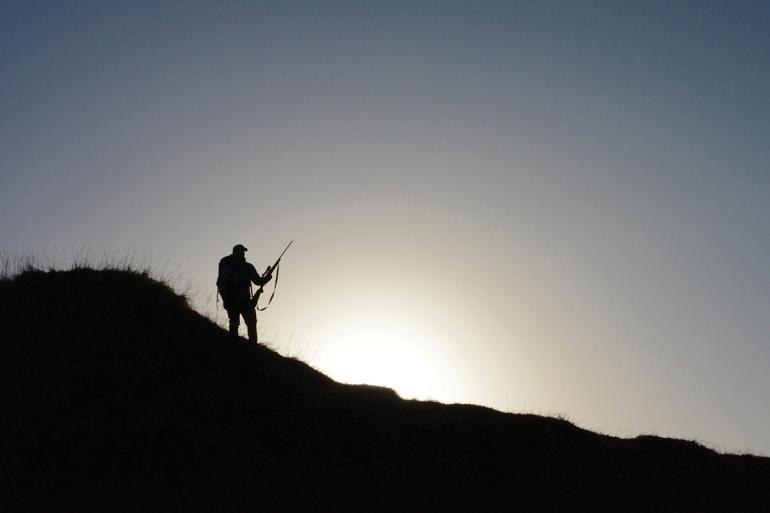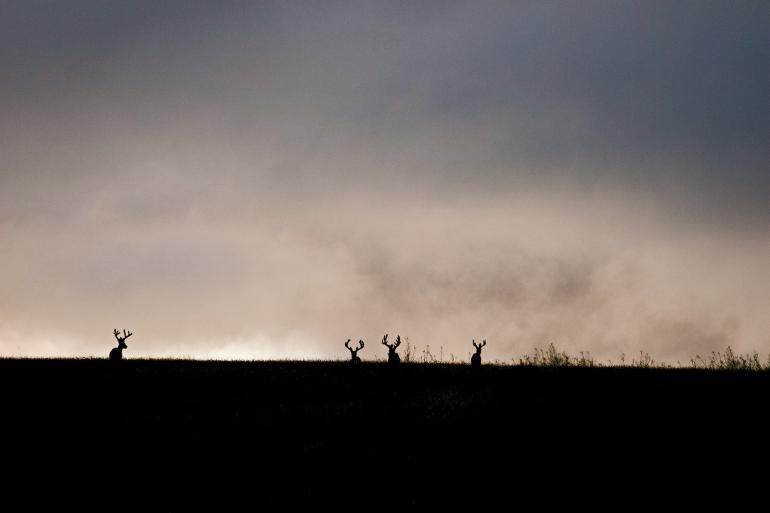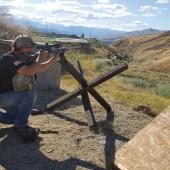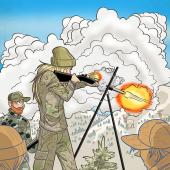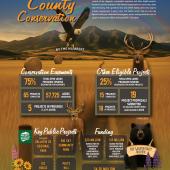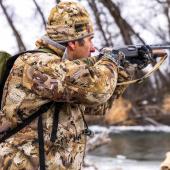Resident Rights
Supporting resident sportsmen is about more than hunting—it protects a Montana way of life.
Although the recent flood of newcomers to our state will inevitably alter our demographics, certain facts remain. High-paying jobs are scarce, taxes are high, and winters are cold. Those of us who have been here most of our lives have tolerated those inconveniences for various reasons, none more important than the opportunity to enjoy Montana’s exceptional outdoor-recreation opportunities, including hunting and fishing. Increasingly, those rights are becoming compromised by ever-larger numbers of non-resident hunters, especially those hunting on leased land, who take the best our state has to offer while giving little in return.
Granting state residents preference over non-residents in allocation of hunting opportunities certainly enjoys historical precedent.
Fish-and-game regulations are traditionally left to the discretion of individual states, as it should be. States, in turn, consistently grant preference to their residents when resources cannot support all who want to enjoy them. I have hunted in over half the states in the country without encountering one that ignores this precedent. Means of accomplishing this outcome vary from charging non-residents more money for licenses, to limiting the number of licenses and tags available to them, to preventing non-residents from engaging in certain hunting activities altogether.
Treating residents and non-residents differently in fish-and-game regulations dates back at least to 1774, when New Jersey banned non-residents from gathering oysters. In 1872, Maryland banned non-residents from hunting at a popular waterfowl destination. In 1879, Missouri banned non-residents from hunting altogether, as did Wyoming in 1886. Granting state residents preference over non-residents in allocation of hunting opportunities certainly enjoys historical precedent.
While monopolizing some of the best hunting in the state, wealthy non-resident landowners stress our infrastructure just like tax-paying residents, without paying their fair share.
Are these practices discriminatory? Court decisions have found otherwise. In 1978, the U.S. Supreme Court ruled on a suit brought by a Montana outfitter who claimed these policies violated fundamental constitutional rights. The court ruled that non-resident access to fish and game was not protected by the Privileges and Immunities Clause of the Constitution and that higher non-resident fees did not violate the Equal Protection clause, as plaintiffs claimed. In 2019, a non-resident hunter sued Iowa over his inability to draw a required deer tag, claiming that differential treatment of residents and non-residents violated his inalienable rights and equal protection under the law. The court found his reasoning faulty in multiple respects and ruled against him. Court cases in other states have reached the same conclusion.
In Montana, the issue becomes particularly egregious in the case of wealthy non-resident landowners who close their property to resident hunters. Recently, such landowners have found imaginative ways to circumvent traditional restrictions on non-resident licenses. While monopolizing some of the best hunting in the state, these parties stress our infrastructure just like tax-paying residents. Meanwhile, they don’t pay sales tax because we don’t have one, they only pay state income tax on money earned within the state even though most of their wealth originates elsewhere, and property taxes on their trophy ranches are levied at agricultural rates even if their owners have never touched a cow.
For the 2023 season, Wyoming—which faces much the same license-allocation problems as Montana—will decrease the number of non-resident tags for its most highly sought-after big-game animals by half compared to previous years. It is time to draw the line in our state as well.
Suggestions:
1. Limit non-residents to no more than 10% of all big-game tags that require a special drawing.
2. Cap the number of non-resident general licenses at no more than the five-year average number of these licenses sold.
3. Eliminate non-resident landowners from obtaining tags by any means other than participating in the drawing like everyone else.
Such regulation would still allow significant numbers of non-residents to hunt while preserving opportunities for those of us who care enough about Montana to live here.
Former pilot and guide Don Thomas writes extensively about hunting, fishing, and public access. Find more of his work here.


